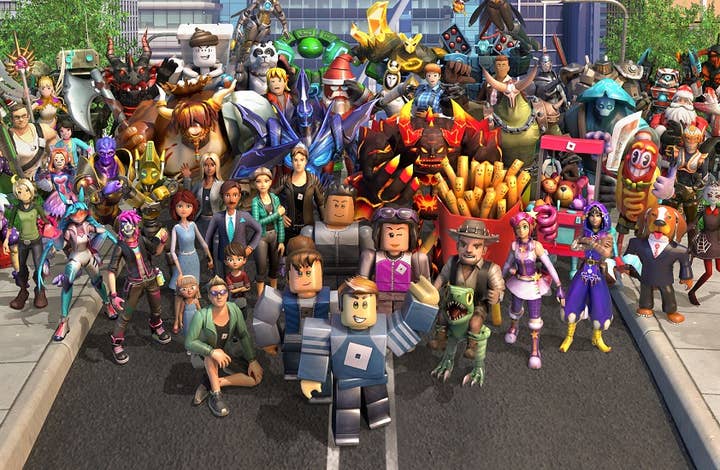Roblox criticized for lack of safeguards for kids, stock-market-like collectibles
People Make Games details a second crop of concerns, says company pressured it to take down original report
In August, People Make Games posted a video to YouTube reporting on a number of ways the Roblox gaming platform arguably exploits its core user base of children between the age of 9 and 15.
That original report drew nearly 900,000 views, and as the outlet's Quintin Smith explained in a follow-up video today, a response from Roblox saying People Make Games should pull the video off YouTube because of "a number of errors" that it refused to detail.
The original report also caused a number of Roblox users to approach People Make Games to discuss other ways the user-generated gaming platform neglects to care for the children who use it.
The outlet took issue with four more aspects of Roblox, starting with a lack of oversight over the people and organizations making games on the platform. The most successful games on the service are made by teams of people, there's little recourse for developers whose managers decide to change the terms of their arrangement or renege on previous deals.
One such developer told the outlet he kept quiet about what happened because the platform has a culture against speaking out or people risk being seen as difficult to work with. People Make Games also noted a lack of recourse for people wronged in such a way, noting that talking about managerial malfeasance on the Roblox developer forums falls under the category of harassment.
The shift toward games being developed by teams has also resulted in less accountability for abusers, People Make Games said, going into the case of the developer of one Sonic the Hedgehog fan game who flirted and sexted with a 12-year-old girl. While Roblox eventually deleted the developer's personal account, he had transferred ownership of the game to a separate account representing the development team. As a result, he still appears to be involved in development and profiting off the continued operation of the game, with Roblox considering the matter closed.
The last two issues People Make Games raised are tied together. The first is that the game has a digital collectibles marketplace for cosmetic items that were made available for a limited period of time, or in limited quantities. Roblox hosts a secondary market where users can buy and sell those items, complete with stock market-like graphs showing the items' value over time. Some of those items go for tens of thousands of dollars now, and every time they are sold, Roblox takes a 30% cut.
When one developer's account was hacked and his collectible items transferred to another account, Roblox support twice refused to help saying he had sold the items himself. When he tried a third time to contact support, they told him the sale happened more than 30 days before, so they couldn't help him.
(The game he had made was also pulled down because he used assets legitimately obtained from the Roblox toolbox asset store, but the person uploading them had stolen them from another user.)
The final point in the People Make Games report is that because Roblox's cut of sales and its terms for cashing out the ecosystem's virtual currency into actual money are so onerous, it is pushing children toward black-market websites where users can arrange to sell collectible items and trade out virtual currency without giving the platform-holder a percentage -- and fall for malware, phishing scams, and hidden fees if they aren't careful.
"This success is alarming because Roblox right now is setting the standard for what society expects in the future of digital labor, of internet child safety, and accountability of big tech," Smith said.
"The CEO of Roblox now has a net worth in the billions. The company makes decisions that affect tens of millions of young people. And yet when we ask them questions where Roblox's own policies appear actively harmful to their young users, we were told that we weren't being objective, while this company refused to even admit the existence of the collectibles stock market they created, of the underground black market website that they allowed to exist.
"They didn't say anything to us about this questionable reality of kids working underneath other kids. They told us that we weren't seeing the bigger picture while refusing to even admit the existence of whole parts of this picture."
A Roblox representative had not responded to a request for comment as of press time.


